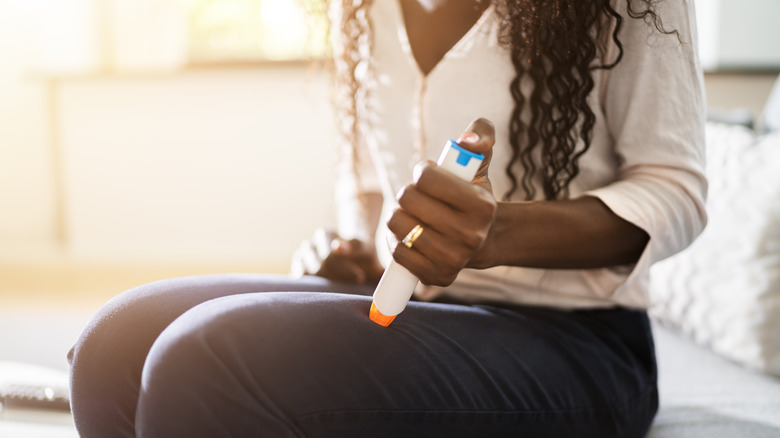What It Really Means When You Have A Latex Allergy
A latex allergy is an immune system reaction to the proteins in natural rubber latex — a product made from the rubber tree sap. Latex is used in a wide variety of items, including balloons, medical gloves, and condoms. While rare, latex allergies can range in severity from mild to deadly and can be triggered by either inhaling or touching the material. According to Cleveland Clinic, anyone can develop a latex allergy at any time, but some people may be at an increased risk of developing the condition if they are frequently exposed to latex, undergo several surgical procedures, or have a history of allergies.
If you have a latex allergy, exposure to latex can lead to skin irritation, hives, rash, runny nose and sneezing, and difficulty breathing (via Cleveland Clinic). In rare cases, however, coming into contact with latex can cause a life-threatening allergic reaction known as anaphylaxis, which can cause you to go into shock. If this occurs, dial 911 or seek emergency medical care.
How to treat and prevent an allergic reaction to latex
Although the best way to prevent an allergic reaction to latex is to avoid it, that's not always possible. Latex is a very common material, according to Verywell Health, so it's unlikely you'd be able to avoid exposure completely. However, you can make other people aware of your allergy. If you're allergic to latex, you should let your doctor or dentist know about your allergy before they examine you so they can use non-latex gloves and other non-latex equipment during your visit. The same goes for surgeons and surgical procedures.
It's also important to read the label on any household rubber product before purchasing it. While some items are less likely to trigger an allergic reaction than others, you should avoid buying and using any product that contains latex. If you've already been exposed to latex and are having an allergic reaction, antihistamines, corticosteroids, and injectable epinephrine are the best course of treatment (per Verywell Health).


